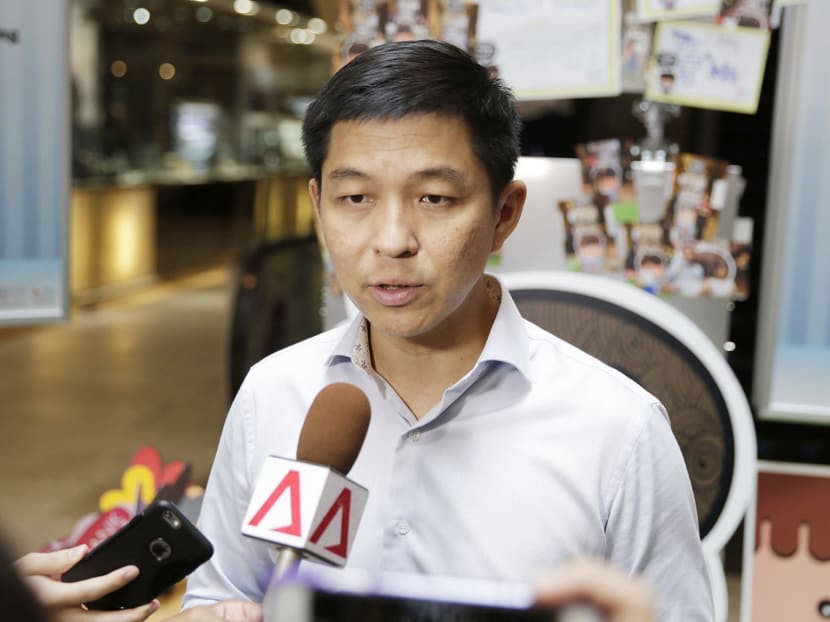S$2 million initiative launched to help at-risk youths over 3 years
SINGAPORE — Emerging problems among youths — be it new forms of bullying, crime, and cyber activities — have made it imperative for youth workers to find new ways to reach out to at-risk youths and intervene as early as possible, said Minister for Social and Family Development Tan Chuan-Jin.
SINGAPORE — Emerging problems among youths — be it new forms of bullying, crime, and cyber activities — have made it imperative for youth workers to find new ways to reach out to at-risk youths and intervene as early as possible, said Minister for Social and Family Development Tan Chuan-Jin.
To help them along, two new frameworks were launched today (Nov 3): One providing standardised assessment tools to guide those helping youths, and the other providing guidance on developing skills of youth workers.
Speaking at a conference for at-risk youths at Star Performing Arts Centre, Mr Tan said youths in Singapore are still in a comparatively “decent state” compared to other countries.
The drop-out rate in secondary and primary schools has fallen from 2.3 per cent from 2005 to less than 1 per cent in 2014.
During the same period, overall youth arrests have declined from 690 per 100,000 youths to 460 per 100,000 youths. And the rates of youth suicide have remained stable, while teenage pregnancy is low, he said.
Stressing the need for continued efforts, as well as to explore new approaches, Mr Tan said: “We must work even more closely together than before, and raise our capability as a community so we can do better for young people.”
The Youth-At-Risk Engagement Framework will kick in from April next year. The S$2 million pilot features standardised assessment tools to guide agencies to better gauge the risk levels and needs of youths, as well as help them develop programmes, such as those involving mentoring and character development through sports or arts. The Ministry of Social and Family Development (MSF) said this could help agencies reach out to youths with pre-delinquency traits, such as those with prior drug experiences, incarcerated parents, or who might engage in risky sexual behaviours, or violence.
Selected agencies will be funded to take on referrals and roll out programmes over three years for some 900 at-risk youths aged between 12 and 21 who are currently not receiving systemic intervention, said the MSF.
Knowing the youth’s risk level would help social workers “prescribe the appropriate intervention, make a referral to another agency, or work together on a shared plan to help the youths”, said Mr Tan.
The second initiative — the National Youth Work Competency Framework — will be launched by the second half of 2017. A tie-up between the MSF’s Central Youth Guidance Office and the National Council of Social Service, it aims to give youth workers a clear understanding of their job roles, and sets out the specialised skills they need.
They can sign up for courses at the Social Service Institute, in areas such as case management, career coaching, the use of social media, and how to conduct family therapy. About 200 practitioners in the youth work sector are expected to benefit from the programme.
Youth workers TODAY interviewed were heartened by these initiatives. One of them was Lakeside Family Services social worker Weevyn To, 32, who said the framework would help workers from different agencies take a broader view of individual cases. “Every agency is different. Some of the agencies may be just focusing only on youth programmes, but they don’t take into account other factors like the youth’s family background, parental conflict, or lack of parental supervision, for instance,” Mr To said.
With this framework, youth workers would be more aware of other areas that need addressing, and can refer the cases to other agencies for further help, he said.
Social worker Benjamin Teo, 33, from Students Care Service, said the framework would also provide a more standard definition of what an at-risk youth is. “Sometimes, we get so caught up in the daily work that we don’t have the resources to come together on a national level... this ensures that we can all move in the same direction and speak the same language… It will raise the level of social work,” he said.
The conference, attended by 1,000 participants from government agencies, voluntary welfare organisations and schools involved in helping at-risk youths, continues tomorrow.







